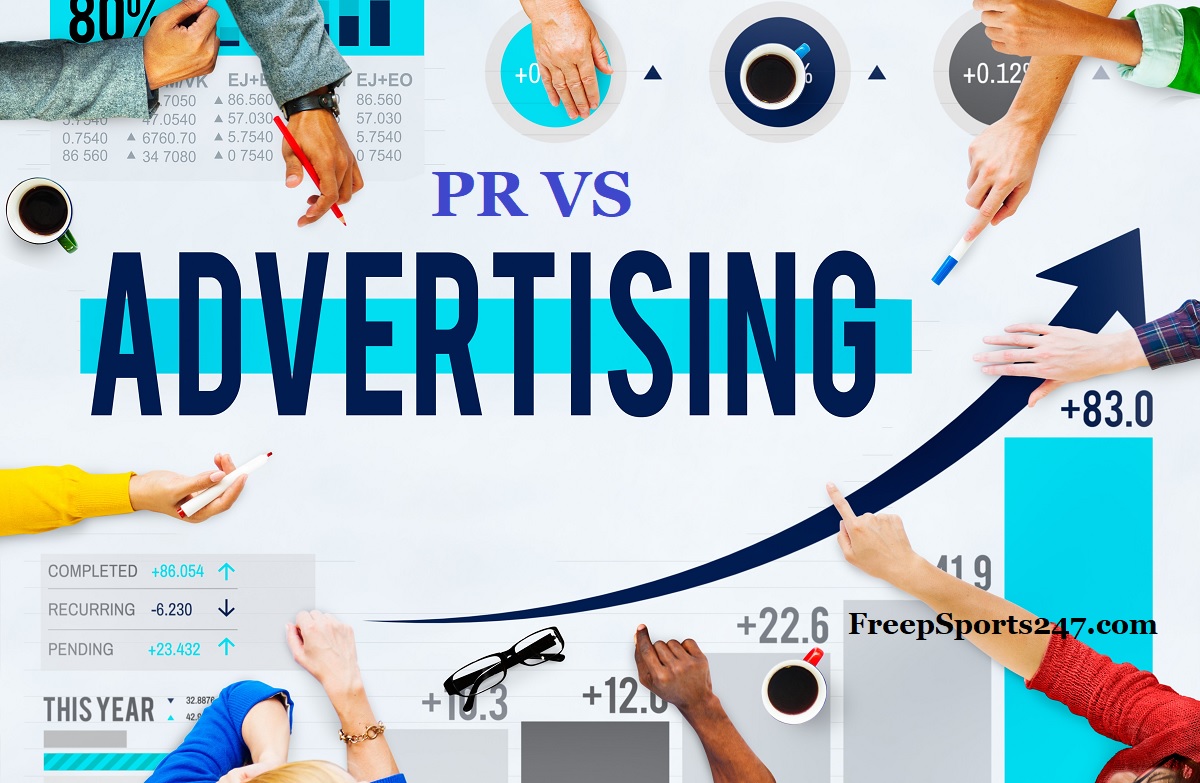Public relations and advertising are typically used by businesses as their main promotional strategy to connect and engage with both current and future customers. Two of their common goals are upholding a solid corporate reputation and developing enduring client connections. This essay looks at the core concepts of advertising and public relations, pointing out their main distinctions and making recommendations for possible career routes in each industry.
What Precisely Is Public Relations?
Building a solid, mutually beneficial connection with the public is a company’s goal in public relations, or PR. As a public relations specialist, maintaining the company’s excellent reputation and using messaging that is in line with the present brand should be two of your main priorities. As a result, this enhances the organization’s ability to communicate with its target audience and maintains its reputation as a reliable source of information.
What Goals Does The Advertising Sector Want To Accomplish?
Advertising across various media platforms and channels, such as print, radio, television, and the internet, is the process of marketing and selling a good, service, or brand. Advertising can help you reach certain audiences with your message and information. You may attract a significant number of potential consumers who are more inclined to make a purchase from you because of their appreciation for what you have to offer.
PR Vs Advertising: There Are Five Main Ways That PR And Advertising Differ.
Since they are connected, there is a strong relationship between the public relations and advertising industries. Certain situations lend themselves more to one method than another. There are some key differences between advertising and public relations.
The Price Of Execution:
The air time or ad space must be purchased in advance for your commercials to run from one date to the next on certain print or digital media sources. Getting media attention through press releases, press conferences, and publications is one way to get free publicity through public relations.
The Information And Picture Ownership:
The tone and content of your advertising are often completely within your control because you are the one who is paying for it. It would be great if you did your own marketing. Your narrative becomes accessible to the media through public relations, and they choose where, when, and how to communicate it.
Duration Of Media Attention:
A sponsored advertisement’s length is frequently based on how much it costs. Because your products are often exceptional and only released and advertised once before reporters move on to the next, the media typically covers them for shorter periods of time.
The Target Audience:
Employees typically focus on more niche markets in an effort to develop stronger relationships with each individual customer. Public relations professionals usually compose material for several media platforms to reach a broad audience and increase their firms’ and brands’ visibility.
The Movement’s Objectives:
The main goal of commercials is to highlight and promote the benefits that customers could have from a specific brand or product. Projecting a favorable image and building relationships based on trust are the two main objectives of public relations.
How To Select An Option Between Public Relations And Advertising?
Even if their jobs and responsibilities are similar, they are not the same. Consider how the duties fit your skill level and interests while selecting a job. You may find the following advice useful in choosing Between PR and Advertising:
Determine how much experience you have.
Consider how well your present skill set meets the demands of each position when choosing the kind of profession you wish to pursue. Employees in the advertising industry need to possess the following abilities because the industry frequently depends on ideation and the development of original campaigns:
- The ability to work well in groups to accomplish tasks.
- Writing and speaking intelligibly and succinctly.
- The novelty.
- Genuineness and ardor.
- Developing an approach.
The majority of work in the public relations sector is focused on building stakeholder relationships and improving the public’s perception of businesses. Employees frequently have to be extremely helpful and vigilant to make sure that all interactions and materials provided to audiences are handled professionally.
Analyze The Obligations And Tasks Related To Each Profession:
You may assess how well your abilities and skills match the duties of various positions inside a certain firm by getting to know them. Find out each PR and advertising role’s title and duties. Building dependable relationships with the media, arranging media appearances, composing press releases, and organizing events to promote or raise funds for charity organizations are some of the main responsibilities of public relations experts.
Advertising experts should devote more of their time to coming up with concepts for innovative and persuasive advertising campaigns, in addition to completing pertinent jobs. Creating effective advertisements, planning advertising, allocating funding to various campaigns, and taking arresting images are just a few of their numerous significant responsibilities.
Evaluate Your Level Of Experience And The Amount Of Work You Are Willing To Put In:
If you’re considering a job in advertising or public relations, consider your interests and skills. If you’re the kind of person who gets maximum satisfaction from putting their ideas to use, an advertising profession could be your best bet. Creative thinkers are in great demand in the advertising sector because of their capacity to offer original ideas and approaches that set businesses apart from competitors. Working in advertising is one of the finest ways to put your creative writing or design abilities to use.
If you discover that your right side of the brain functions better when it comes to planning, assessing, and implementing ideas, think about a career in public relations. Your ability to arrange events and handle PR might make you more organized. Press conferences and fundraising initiatives are a couple of these occasions. To ensure that documents appropriately represent the organization, make the most of your attention to detail by thoroughly reviewing them before they are made public.

